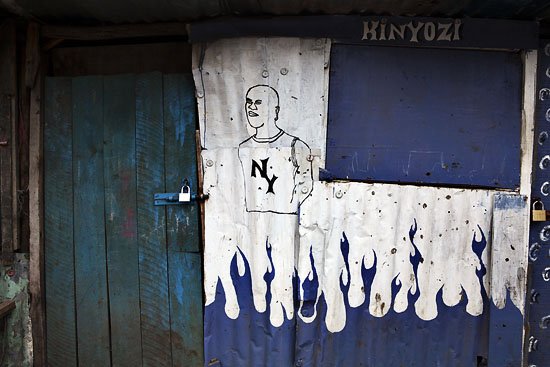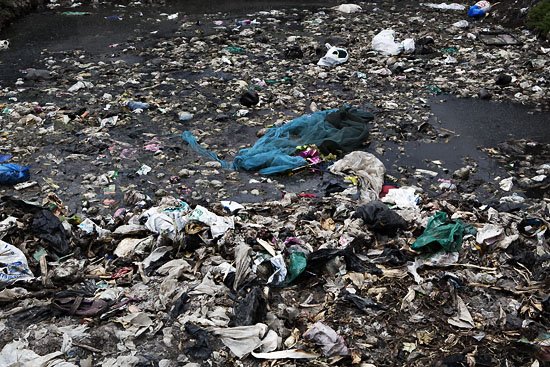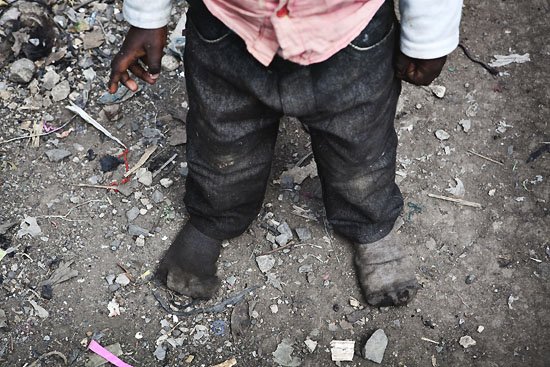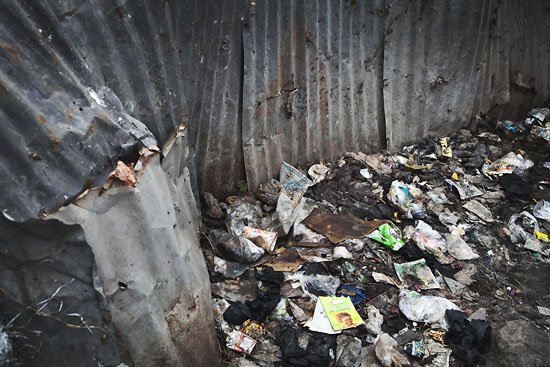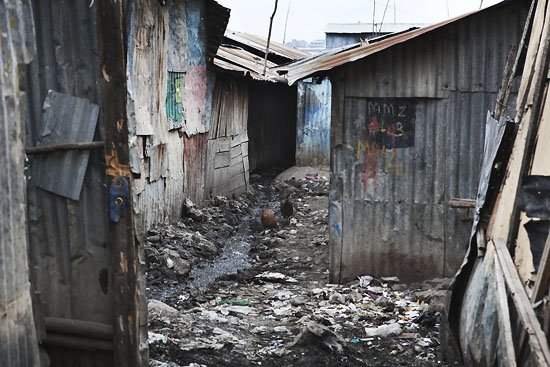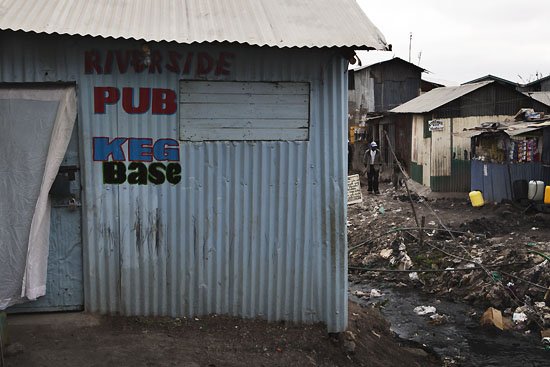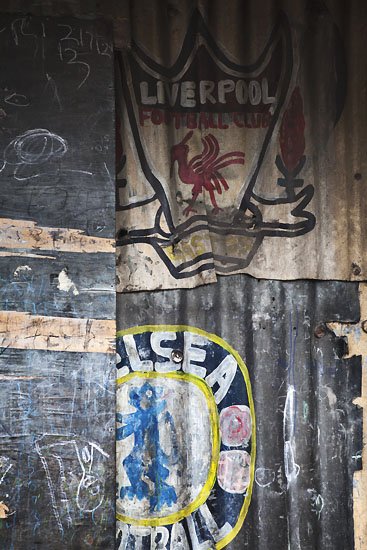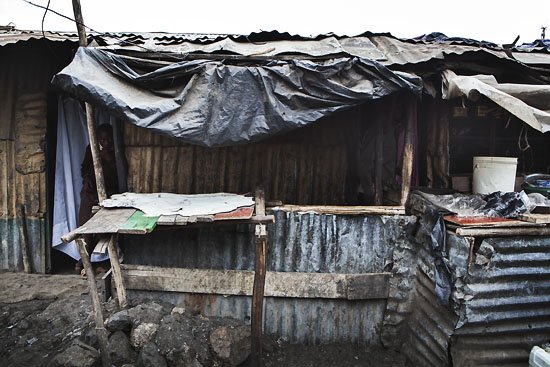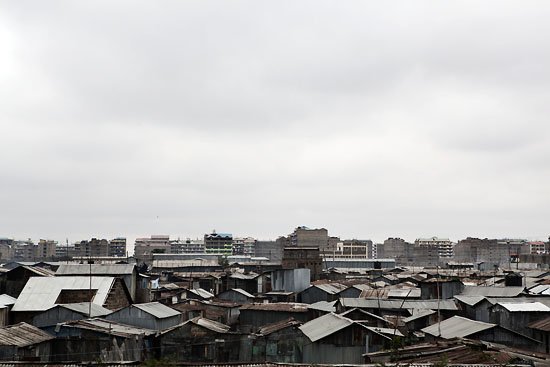
mukuru kwa njenga pt.1
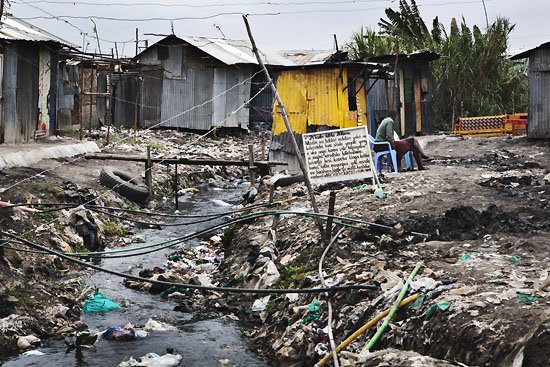
the conditions in mukuru kwa njenga appear to be much worse than those in mukuru reuben.

the only 'empty' void (FULL of waste of every kind) here is land that has yet to be built on by someone who has bought the land, but hasn't yet been able to afford the building materials to build a tin shack on it.
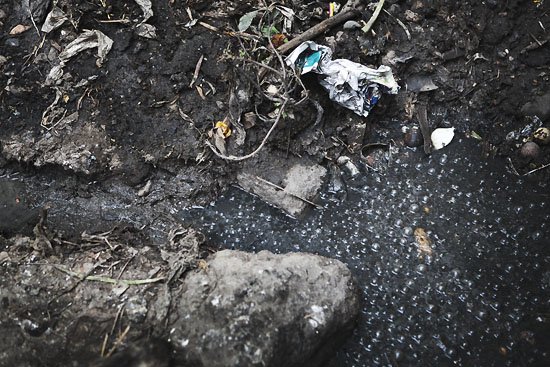
the black liquid around mukuru kwa njenga bubbles as (methane?) gasses make a break for freedom in a way the people here can't.

you need skills to walk around this place, navigating the rocks between the shit and open sewers.
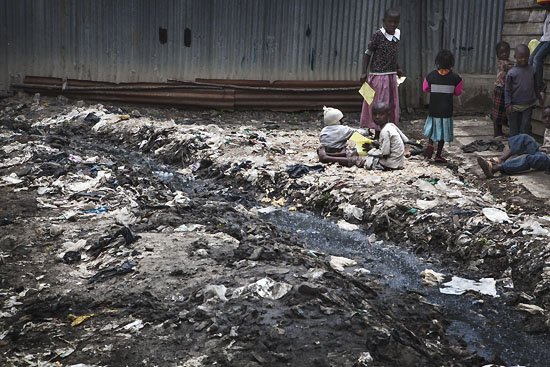
children sitting on land mass made of dried plastic bags (mainly dried out flying toilets) next to a black, bubbling, open sewer.
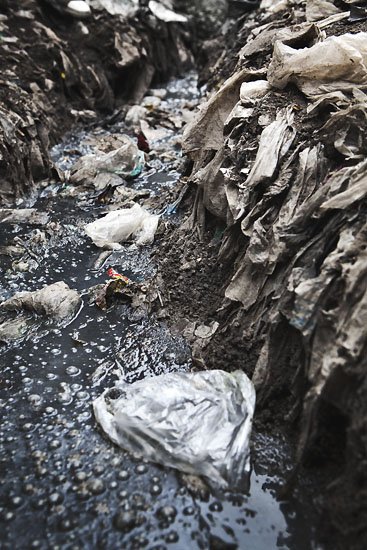
so every now and then a volunteer will dredge out the open sewer, dragging out the flying toilets and plastic bags that can't be recycled and depositing them on the side.

here's one of those volunteers dredging the sewer with a hook on a plastic stick
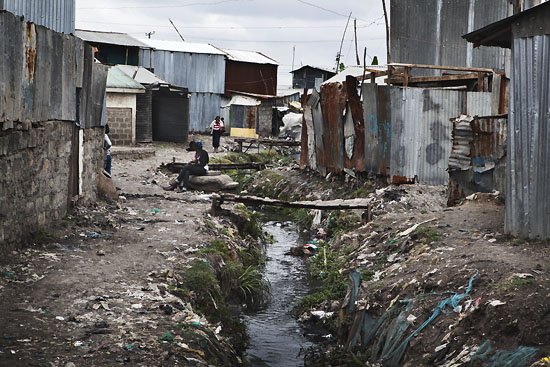
between zones, where the 'steets' are slightly wider between the shacks, you have slightly more room to walk to your next alley and open sewer combo.
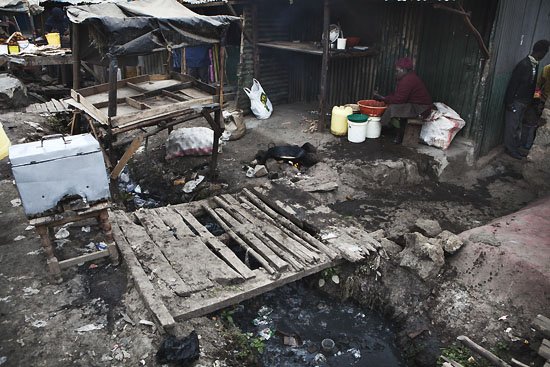
freedom fries
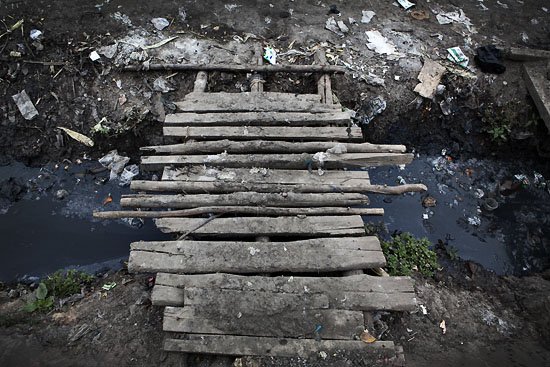

HOME
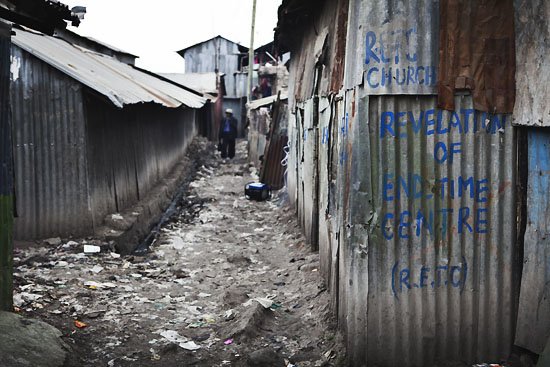
REVELATION OF END TIME CENTRE
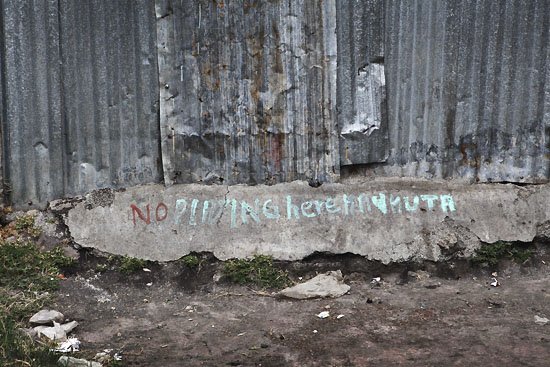
NO PLAYING HERE
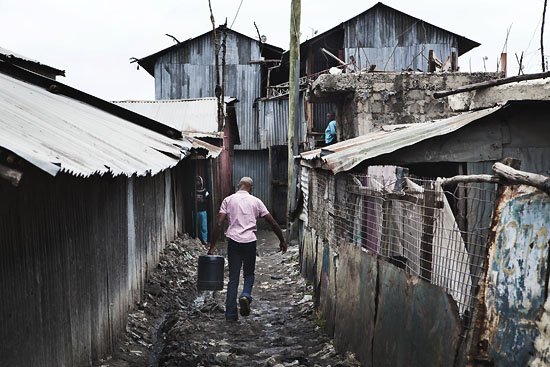
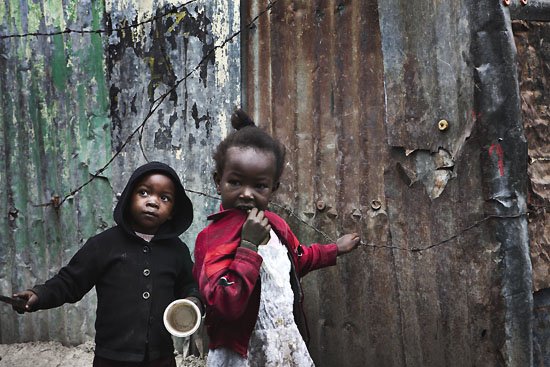
in trawling through the pictures i have on my laptop to post this image, i have caught this picture of (my son) maximum in our orchard tickling a sheep under the chin.
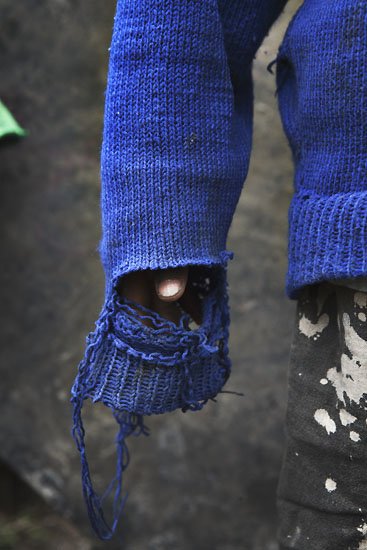
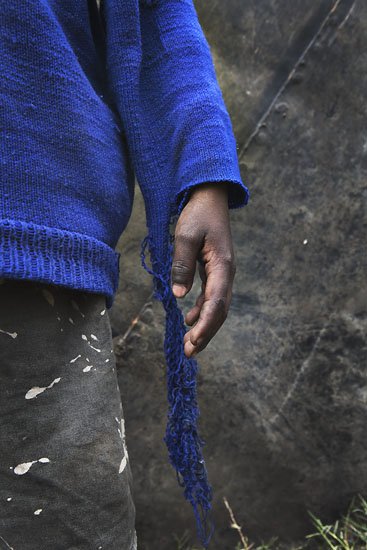
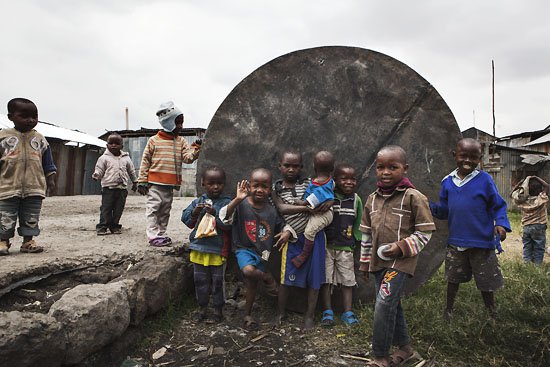
HOW ARE YOU??
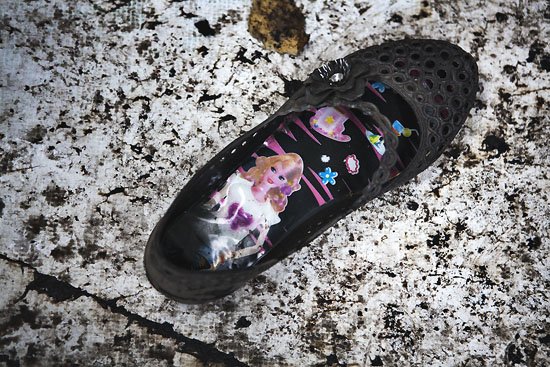
ironic footwear
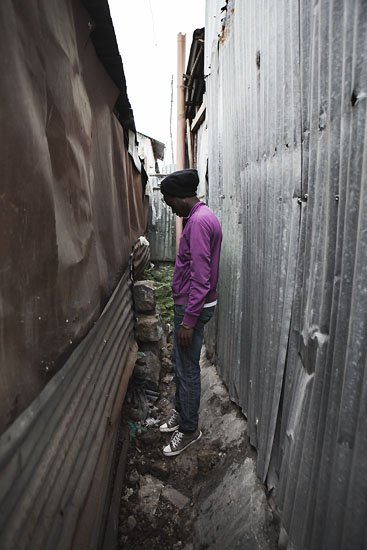
this is davies, from the youth group, who was kind enough to show us around mukuru kwa njenga.
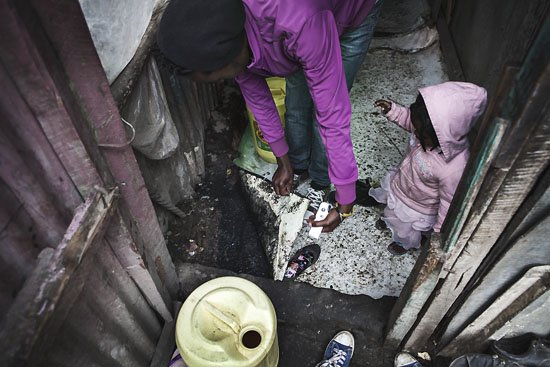
davies is lifting the lino on his mother's floor and showing us how the raw sewage runs all the way under his mother's house.
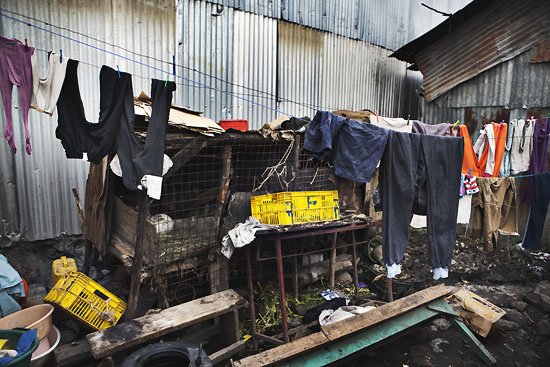
davies' mother's 'yard' where they keep rabbits in hutches, hang their washing, make compost out of rabbit droppings and rotten tomatoes (that davies' mother sells) and an outside toilet
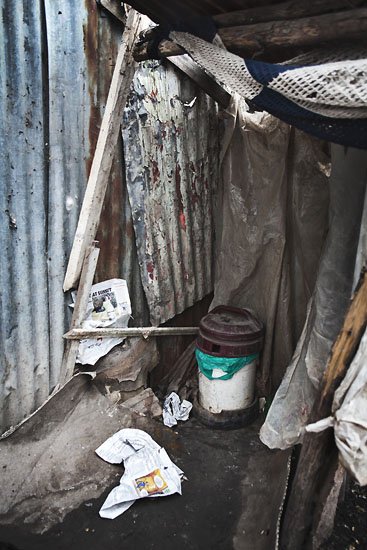
davies' mother's toilet.
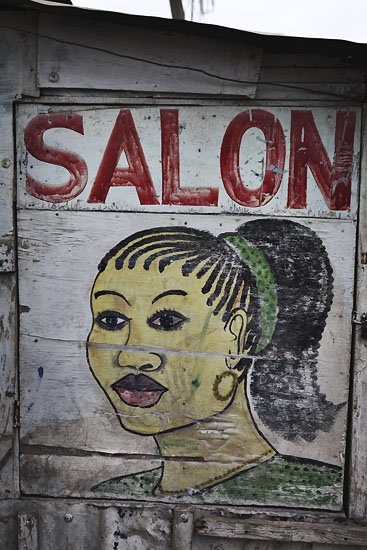
salon
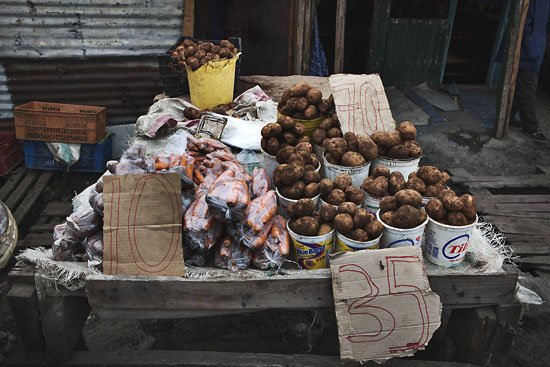
rough rate of exchange: 100 kenyan shillings to the 1 pound uk sterling
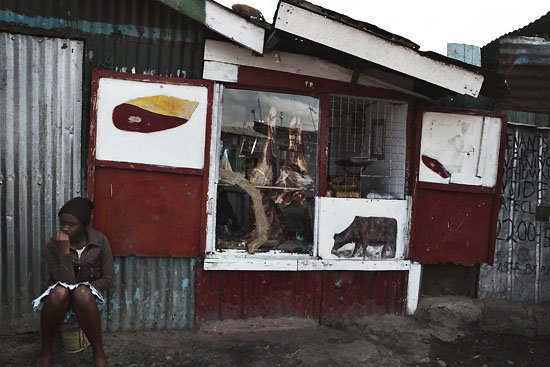
the butchers
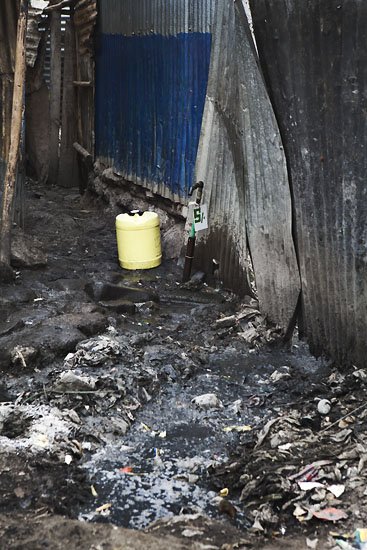
water
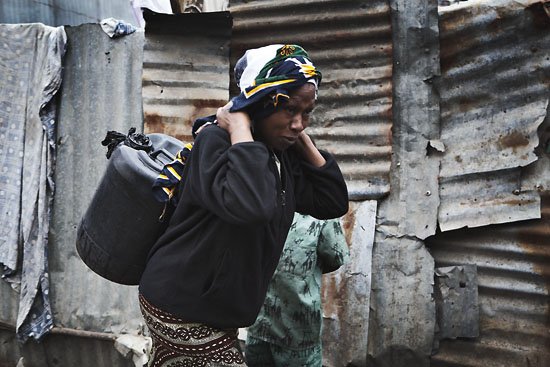
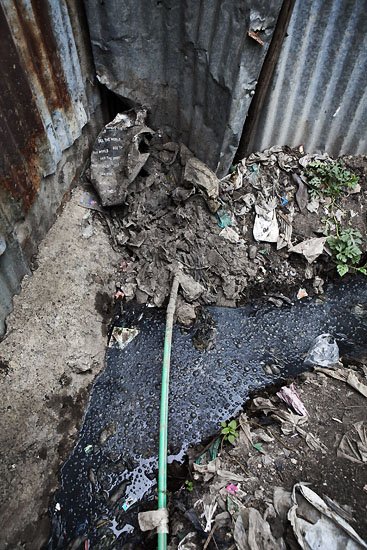
the youth group/s and other community groups have pipes in place to receive water from the bore hole.
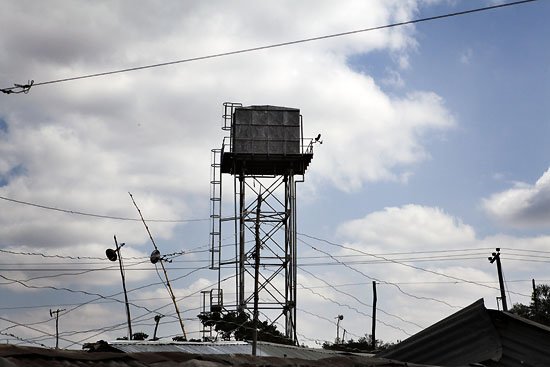
you can see the clean water tower owned by the waterboard and tapped by the cartel, from all over makuru kwa njenga.
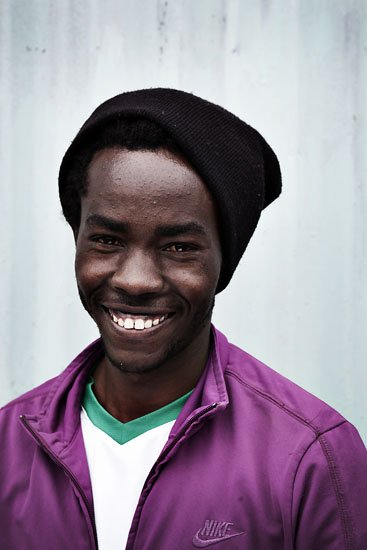
davies
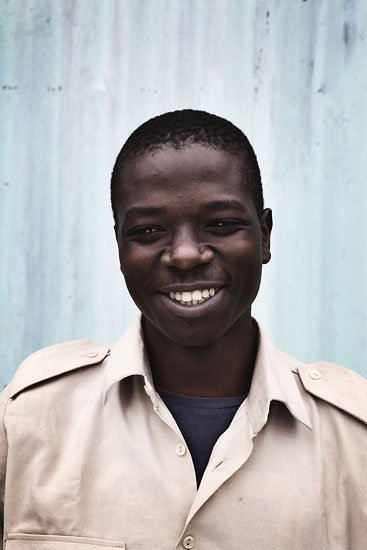
elphas
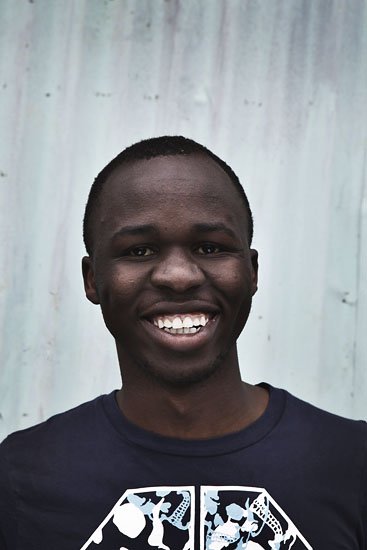
daniel

brian
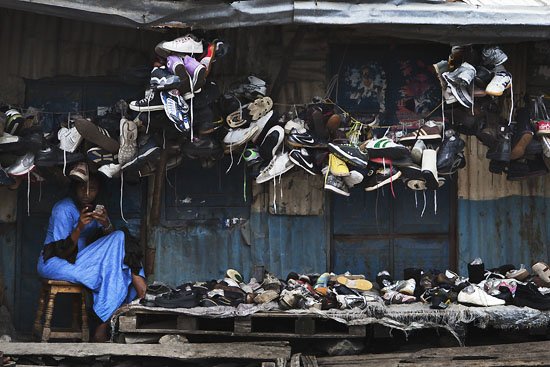
a shoe shoppe
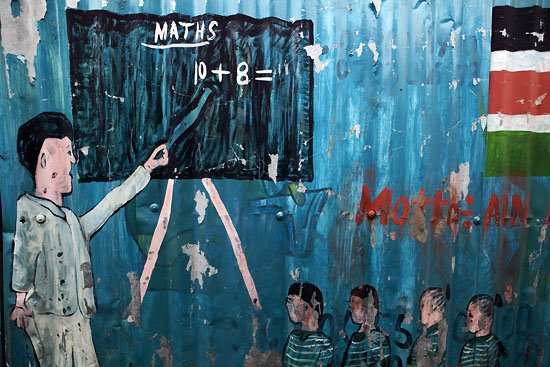
a primary school wall
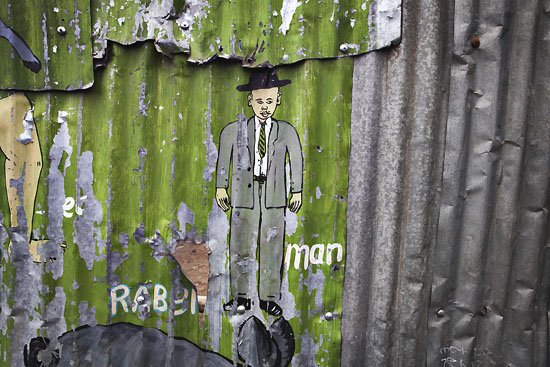
man
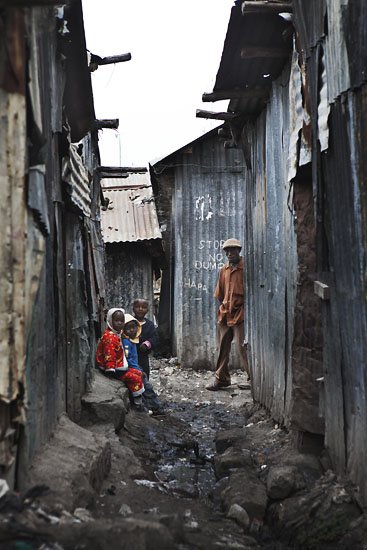
STOP NO DUMP...

